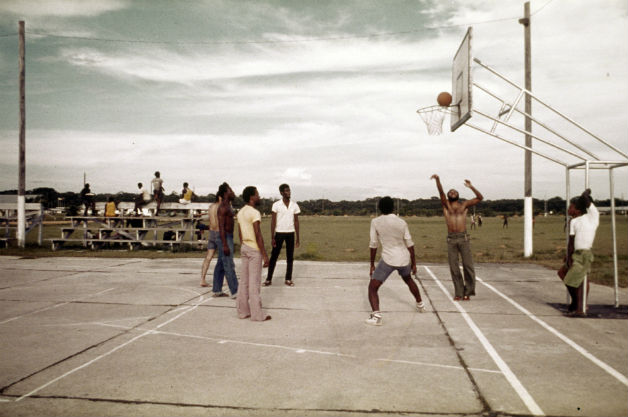"Sports provide a safe and controlled environment for youth"
July 21 On 25 July, governments will meet in London to consider how sport can contribute to advancing vital development goals. The 6th Commonwealth Sports Ministers Meeting will review how all types of games – from football to fencing – can address social and economic challenges and promote global public health.
On 25 July, governments will meet in London to consider how sport can contribute to advancing vital development goals. The 6th Commonwealth Sports Ministers Meeting will review how all types of games – from football to fencing – can address social and economic challenges and promote global public health.
But why is sport so important for national development? According to Grant Duthie, 18, a Commonwealth Correspondent from Australia, it gives students greater focus in the classroom and improves life expectancy.
Remaining active and healthy is an essential component of development as it provides a way for students to learn about leadership and teamwork, which are fundamental to the longterm political and economic future of a country.
Sports also provide a safe and controlled environment for youth and avoids criminal activities and unsustainable behaviour among teenagers. Similarly, through increased physical activities students have a greater focus in the classroom and improved learning retention which improves education levels.
The absence of many other forms of entertainment in developing countries makes sport considerably important to ensure productive and well functioning communities. Sport also allows for the establishment of a national identity that promotes cohesion and pride for a developing country. This greatly assists in reducing the threat of disunity, ethnic tensions and civil unrest.
Incorporating physical education in school life provides an opportunity to teach students about active and healthy living which is also connected to improving life expectancy and overall well being in communities.
Through increasing these statistics, the productive lifespan of individuals in developing countries is extended which also boosts development.
…………………………………………………………………………………………………………………
About me:
“I’m currently studying Economics and Behavioural Science at Queensland University of Technology in Brisbane. Through my concern for the environment and international affairs I’ve had opportunities to work with Polar Bears International in Canada and UN Youth Australia.
“Both experiences have led to a newfound interest in understanding the role economics plays in evaluating environmental decisions, human behaviour and societal development.”
…………………………………………………………………………………………………………………
Opinions expressed in this article are those of the author and do not necessarily represent the views of the Commonwealth Youth Programme. Articles are published in a spirit of dialogue, respect and understanding. If you disagree, why not submit a response?
To learn more about becoming a Commonwealth Correspondent please visit: http://www.yourcommonwealth.org/submit-articles/commonwealthcorrespondents/
…………………………………………………………………………………………………………………




